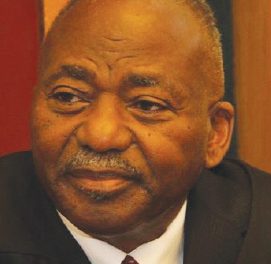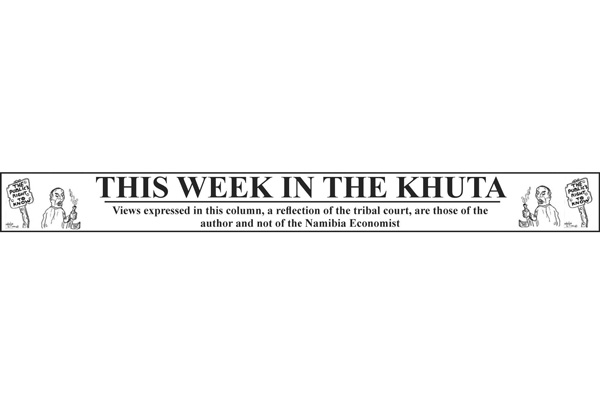
Satellite TV: still the best value-for-money family entertainment

By Lelanie Basson
Namibians are facing tough financial times. Recently, tax operators in Windhoek attempted to bring the city to a standstill as they clamoured for a whopping 20% price increase; the Electricity Control Board granted NamPower a 5% electricity tariff hike; and the cost of the government’s New Era Newspaper abruptly rose from N$3 to N$5 per edition.
On the lighter side of life, the cost of entertainment has also soared. Watching a blockbuster movie in Windhoek, without buying any refreshments to enjoy with it, comes in at around N$150 per ticket.
A package for every pocket
While some Namibians quietly bemoan the increase in monthly premiums for pay-tv services, satellite TV still compares favourably to other luxury entertainment options. These price increases are necessary to cover the escalating costs of satellites; technology and network upgrades; channel costs and other operational costs, all of which enhance the overall satellite TV viewing experience
Higher premiums also ensure better programming. Take DStv, for instance. In recent years the pay-tv service provider has broadened its offerings, and today provides a smorgasbord of entertainment sports, news and reality TV programming.
To ensure affordability for as many consumers as possible, service providers aim to offer different programming packages to suit every pocket. DStv’s Premium package, for example, provides customers with access to 188 TV channels and 68 audio channels for N$809, while its DStv Access package features 102 satellite TV channels and 69 audio channels for N$120 per month.
Digital Terrestrial Television (DTT) is multifaceted process with major benefits and impacts on production, reception and transmission – offering television viewers more channels, improved picture quality, better reception and sound, electronic television guides, enhanced parental control features and interactive service. Digital television also reduces costs for both broadcasters and television viewers.
On the DTT spectrum, this flexible affordability is demonstrated through MultiChoice’s GOtv offering which was first introduced to Namibians in 2012. Currently, GOtv provides four packages ranging from N$30 for 15 channels to N$190 for 42 channels.
All access
The internet continues to disrupt business models across many industries. As increasing numbers of consumers connect to the web, so additional entertainment services are emerging, transforming the way in which we watch TV. Recently, over the top TV (OTT) entered the market. OTT streaming content providers sell audio, video and other media services directly to consumers.
While the nature of these entertainment offerings is similar to that of satellite TV where some series and movies are concerned, the range of services offered by these providers remains quite limited. Global sporting events, news channels and local productions are excluded from OTT services. This is further compounded by a lack of suitable internet speed in Namibia, expensive data charges and insufficient customer support facilities, particularly in local languages.
Recognising the need to remain competitive, some satellite TV providers have begun offering OTT services as well. MultiChoice has combined both international content with specialised local content to tablets. Incidentally, this service also includes access to two NBC TV channels.
Pick and choose
Despite this significantly enhanced viewing experience that pay-tv operators now offer Namibians, it’s not uncommon to hear subscribers say they wish they could put together their own programming packages.
However, encryption technicalities, continued anti-piracy initiatives and licensing costs prevent pay-tv service providers from offering subscribers the option to cherry-pick the channels they wish to subscribe to.
Industry observers agree. In November 2016, mybroadband.co.za noted, “capital expenditure costs are high, so you have to package things in such a way that they become affordable to as many people as possible.” “Not all channels cost the same and some licensing costs decrease as the number of potential viewers increase, due to being able to offset content costs with advertising.” The issue of licensing is an important factor to consider, and plays a major role in the cost of satellite TV services.
Sky and BT Sports paid £5.136 billion for the right to show live English Premier League (EPL) football between 2016 and 2019. The two companies recently bough five packages for £4.464 billion for the 2019 – 2022 rights. That’s a pretty penny for premium sports content, the likes of which is not easily found outside of pay-tv programming.
In much the same way as consumers can’t apply for ‘gym light’ memberships or only sign up to use one gym apparatus, like the exercise bikes, so viewers can’t handpick the channels they want to watch. In fact, gym subscriptions are a case in point. Some can cost as much as N$1 200 per month, yet the choice is ours to take them, even if we only use a handful of apparatus or leave them.
Sports fanatic
Speaking of sports, Namibians have grown accustomed to having access to the world’s biggest live sporting events, courtesy of satellite TV services. The unpredictability and the drama of the English Premier League make it a firm favourite, while Spain’s La Liga with its dominant duo. Real Madrid and Barcelona, draw a sizeable following. Namibians also follow South African football and rugby with keen interest. Local and international boxing, professional tennis, athletics, cricket and the Olympics frequently have Namibians glued to their screens.
Many pay-tv operators try but fail to secure the rights to broadcast every major sports tournament. Here, special mention must be made of MultiChoice’s SuperSport channels. They constantly broadcast the big-ticket sports events, and ensure a good spread of local and international sports coverage across all DStv packages.
No place like home
Its clear satellite TV has much to offer fans, but how does it measure up to other forms of entertainment? Well, consider the dinner for a family of five at a franchise restaurant in Windhoek costs around N$800, and local football supporters fork out as much as N$40 per Namibian Premier League (NPL) match tickets and more than N$300 per month, excluding transport costs and refreshments.
Live music concerts are even more, with tickets often ranging from N$600 to N$1 000 per ticket for just a few hours of entertainment. Looking at the breadth of entertainment offered on pay-tv platforms, the flexibility with which viewers can enjoy this programming, and perhaps most importantly the affordability of this content, satellite TV is still the best value-for-money family entertainment.













































